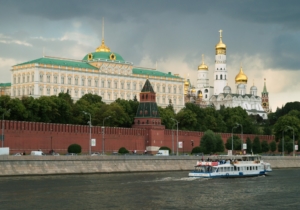By Gilberto Villahermosa,
“Good friends come and good friends go. But a good enemy should last you a life time!”
– Hagar the Horrible –
The Inauguration of President Donald Trump heralds a major U.S. policy shift toward Russia, China, Ukraine, and NATO. Neither President Trump, nor his National Security Adviser, retired U.S. Army lieutenant general Michael Flynn, view Russia as an existential threat toward the United States. Instead, both view ISIS as the major threat to America and believe that America and Russia can and should work together to wipe ISIS off the face of the earth.
Not all of Trump’s cabinet, however, agree with the newly elected commander in chief on his views about Moscow. Secretary of Defense, retired Marine Corps four-star general, and former CENTCOM commander, James Mattis, like many in Washington, continues to consider Vladimir Putin’s Russia as a significant threat. Mattis is joined in his views by many top U.S. military commanders and senior politicians, most notably Senator John McCain of Arizona. Mattis and McCain represent the Old Cold Warriors, who continue to view the world through the prism of the Cold War. They do not fully acknowledge the serious economic, political, social, demographic, and military problems facing Moscow.
Plunging oil prices and western economic sanctions against Moscow have ravaged the Russian economy, wiping out substantial currency reserves and plunging the country onto the edge of recession. Corruption and criminality remain rampant. The population continues to decline as a result of both low birthrates and the fact that many young Russians have opted to leave the country to find opportunity elsewhere. There are insufficient young men and women to man the armed forces at the levels Putin desires. Furthermore, 80 percent of the armed forces are still conscripts. And the Russian armed forces remain under-funded and under-resourced. That Putin has been able to accomplish so much vis-à-vis Ukraine and NATO is due more to the respective weaknesses of the Kiev and Brussels than to the actual strength of Moscow.
In contrast, Trump and Flynn are Post-Cold War Warriors, conditioned more by 9-11 than the Cold War, who see the major threat to America as emanating from Islamic extremism in the Middle East. To defeat that threat, they are willing to enable Moscow (by lifting the sanctions) and work with Russia. They respect Putin’s muscular approach toward ISIS in Syria and recognize that a weak Russia benefits no one (except, perhaps, China). On the other hand, a strong Russia could represent a force for stability in Eurasia and the Middle East. They also recognize that a robust Russia can help the United States to contain Chinese expansion in the Pacific. Ironically, Trump and Flynn take the threat from ISIS more seriously than General Mattis and most of the U.S. military.
Thus, the stage is set for a potential policy battle between President Trump and National Security Adviser Flynn, on one hand, and the Secretary of Defense Mattis and many U.S. military commanders and members of Congress on the other. The latter will no doubt receive assistance in this effort from Democrat lawmakers who have embraced a newfound enmity, which some pundits describe as Neo-McCarthyism, following allegations of Moscow’s hacking the 2016 Presidential elections. At stake are the future of economic sanctions against Russia, U.S. policy toward Ukraine (in the face of what many view as an imminent threat from Moscow) and U.S. support for NATO. However, this will not be General Mattis’ first rodeo with the White House. The former CENTCOM commander, who took a much harder line approach toward Teheran than the White House, was sacked by President Obama for what many liberals viewed as his saber-rattling.
Will Trump and Flynn change their view of the world? Unlikely. Will Secretary of Defense Mattis toe the line? Absolutely. But Mattis and the military, along with many in Congress, will continue to highlight the threat they believe Moscow represents to the new President. Trump and Flynn can expect a great deal of resistance as they try to push forward a new policy toward Russia – the enemy that too many here in America feel should last us a lifetime.
Gilberto Villahermosa is a retired US Army Colonel with more than thirty years of service as a Combat Arms officer, Foreign Area Specialist (Russia, Eurasia, and the Middle East), Strategic Intelligence Analyst, US Army Strategist, and US Army historian in the United States, Europe, Russia and Eurasia, Afghanistan and Central Asia, and the Middle East. He speaks Spanish and Russian and is the author of two books and dozens of journals and magazine articles.


Leave A Comment
You must be logged in to post a comment.